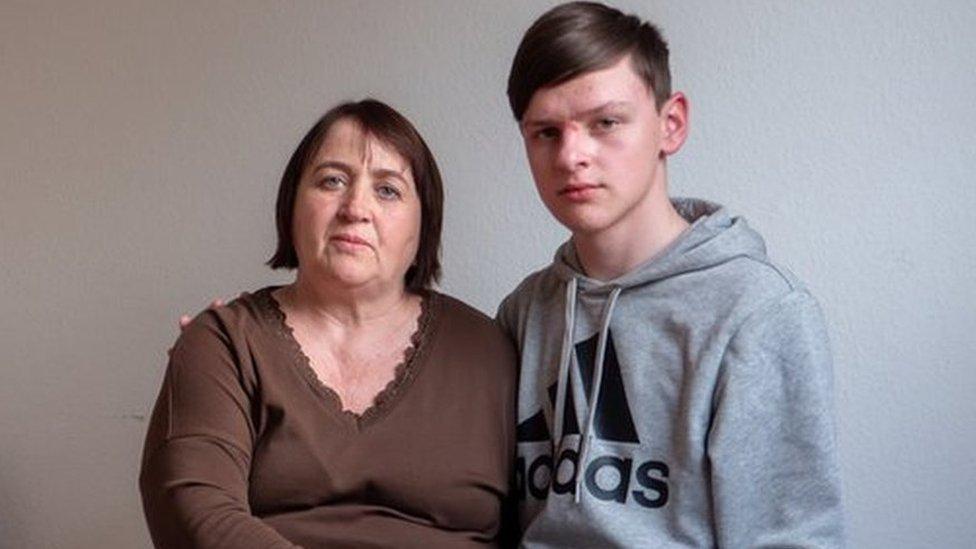Ukraine war: Displaced children facing challenges in schools, EU says
- Published
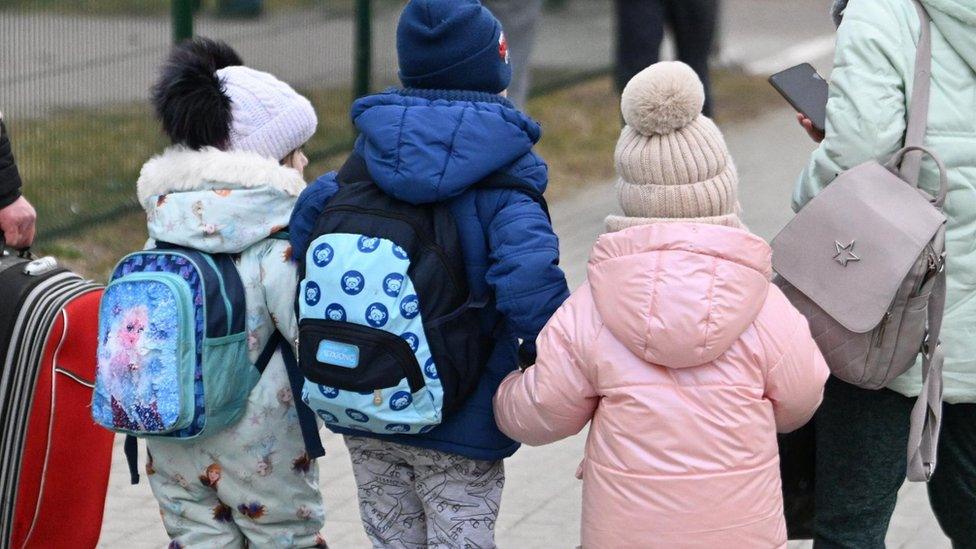
There are 1.3 million Ukrainian children now living in the EU
Children who have fled Ukraine are facing stark challenges fitting into schools in host countries, the EU says.
The bloc's Fundamental Rights Agency said language barriers and teacher shortages were making it hard for schools to integrate the children.
Access to mental health care is another obstacle.
The EU said 1.3 million Ukrainian children were living in member states, most of them aged under 14.
Under a Temporary Protection Directive, external, children who left because of the war with Russia have the right to education in the same conditions as local students.
"Many of these children live in perpetual uncertainty," FRA head Michael O'Flaherty said.
"They have been separated from family members, have had to learn a new language, understand a new culture, and make new friends, all the while not knowing how long this precarious chapter will last."
Language differences were an obstacle in the classroom as well as in accessing counselling, the FRA said.
Meanwhile healthcare services, including mental health support, varied by country and were particularly hard to access in countries whose systems were already languishing before traumatised newcomers arrived.
Many of the students have started their second school year away from home, and the agency warned they were at risk of falling behind.
Protecting those children who arrived without an adult guardian presented a unique challenge, the FRA said, and some countries have had to form specialised teams to support them.
Host countries also had to pay attention to the particular needs of disabled refugees, including accessibility and inclusion, while children evacuated from Ukrainian institutions required individualised care.
Some member states do not have clear data on how many Ukrainian children are in their country, the FRA said, and lack of a uniform approach to registering children throughout the EU hampered efforts to support them.
Unicef reported in August that more than half of school-aged children from Ukraine were not enrolled in national education systems in seven countries hosting them.
There are 5.8 million Ukrainian refugees in Europe, according the UN. Poland and Germany are each hosting around 1 million, and more than 300,000 have gone to the Czech Republic.
Related topics
- Published9 September 2023
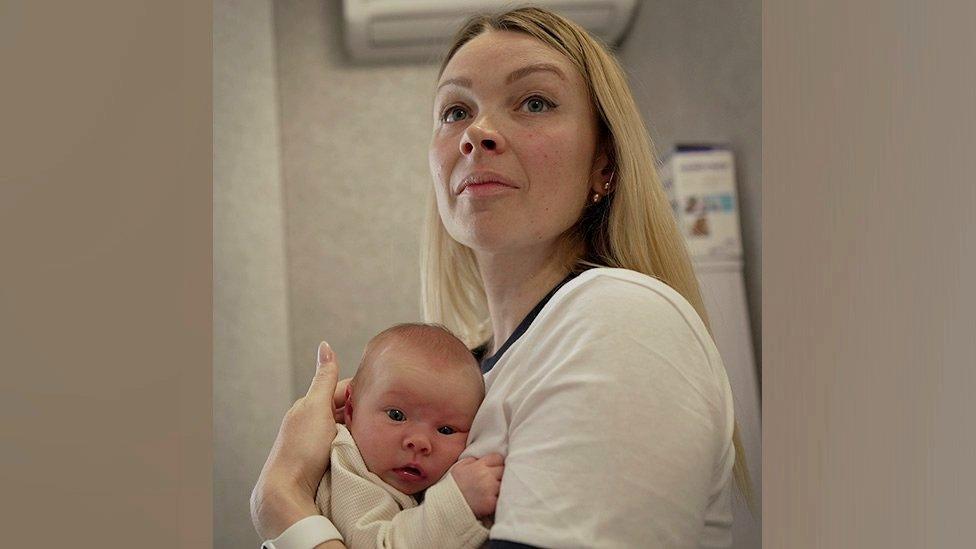
- Published1 September 2023
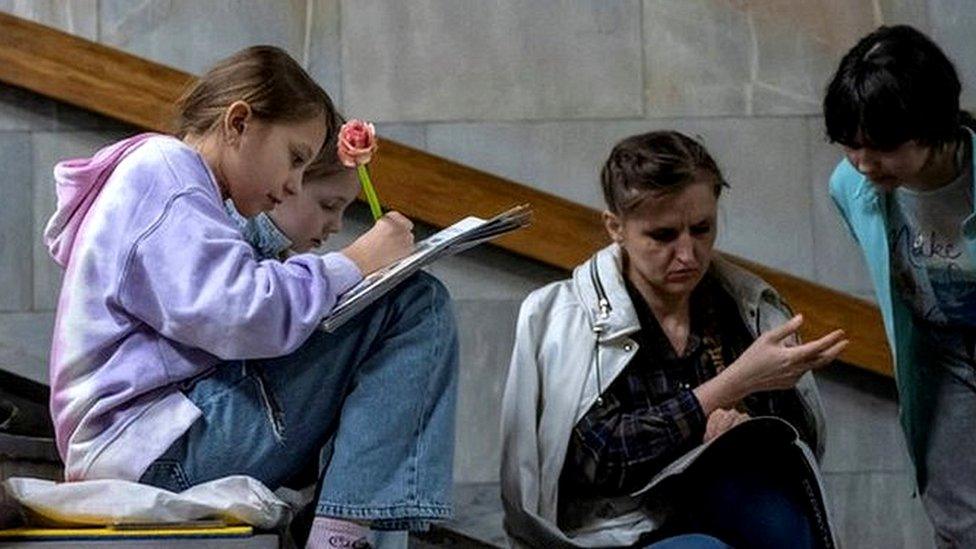
- Published13 July 2023
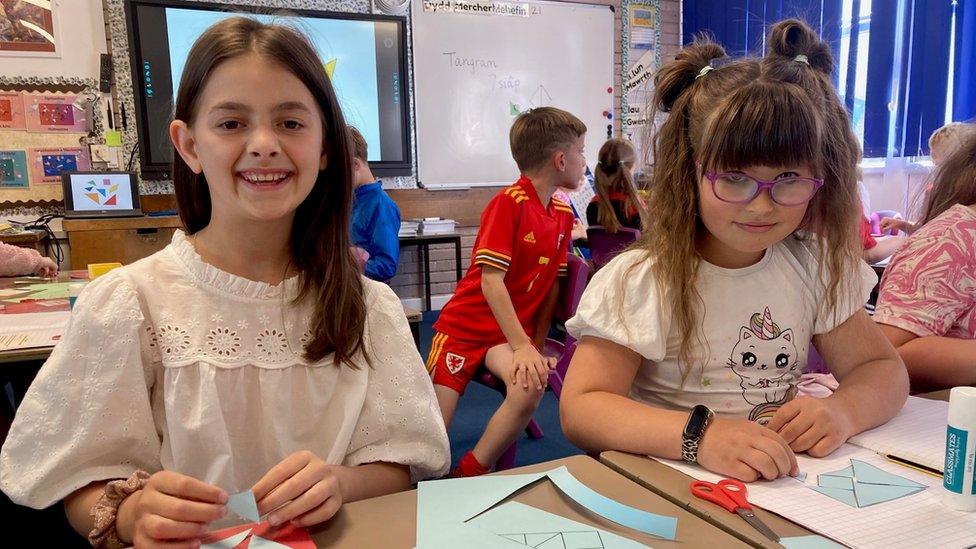
- Published31 May 2023
